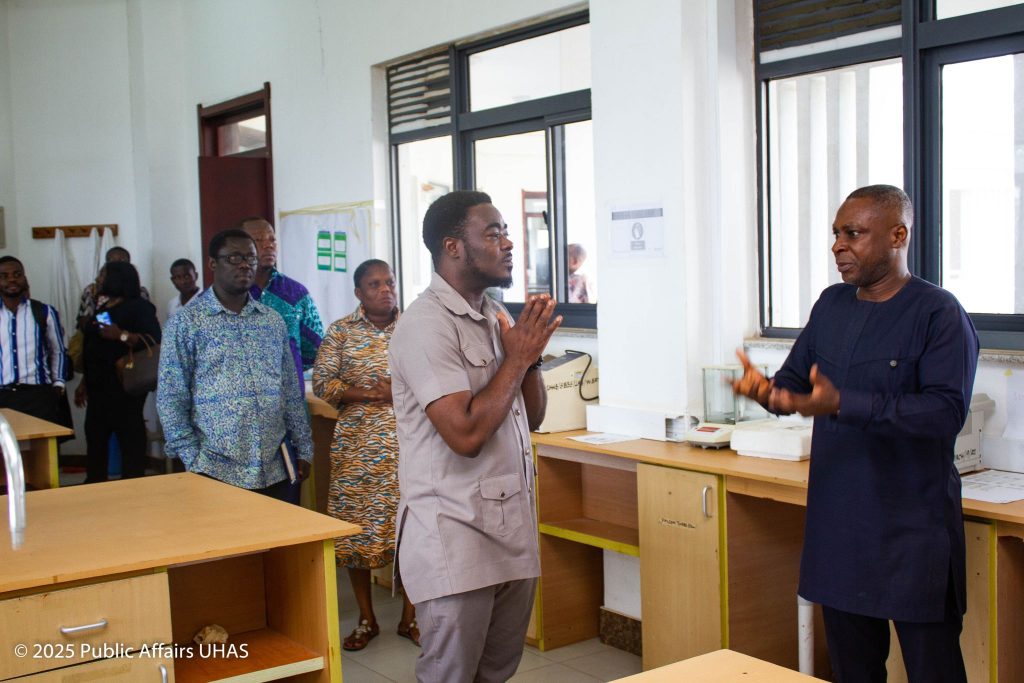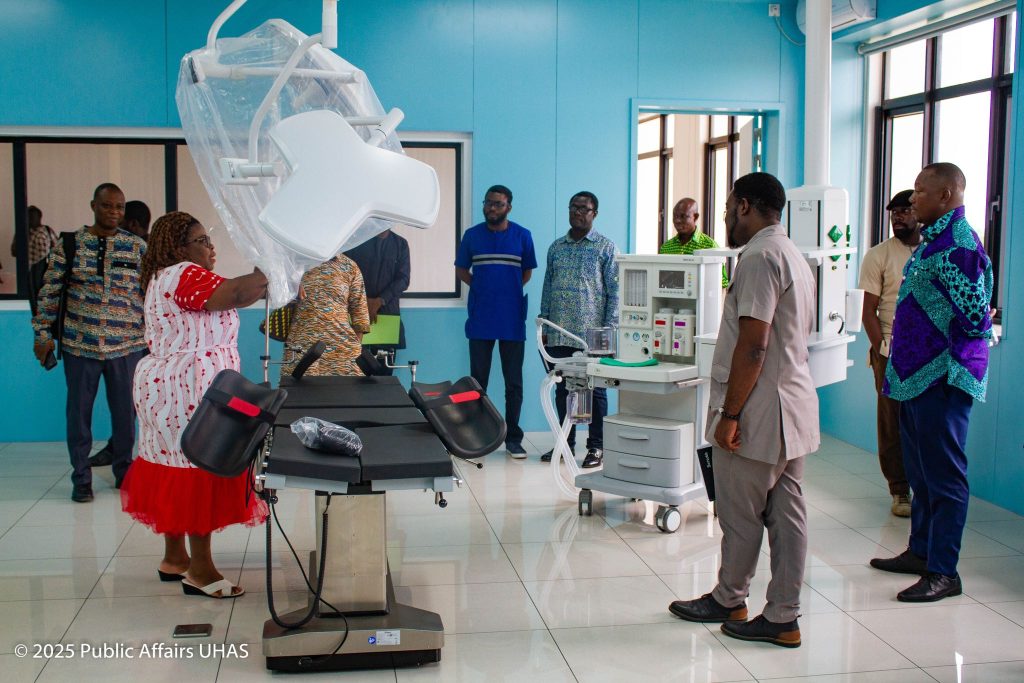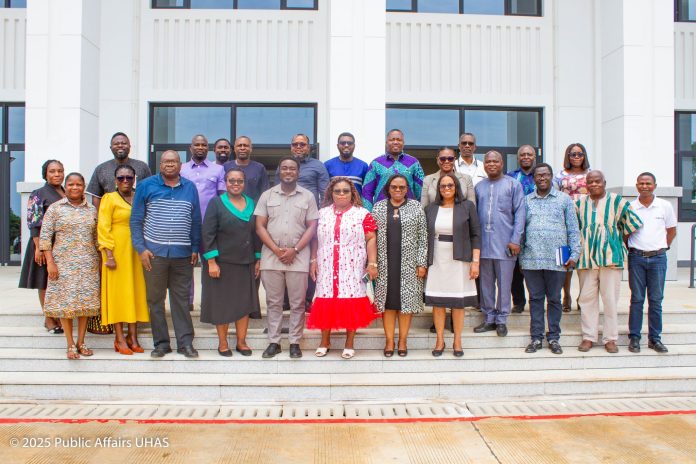BY: Daniel Orlando | VoltaOnline
The Chief Executive Officer of the National Vaccine Institute, Dr. Sodzi Sodzi Tetteh, has stressed the crucial need for local vaccine manufacturing in Ghana, particularly as the country prepares to transition from Global Alliance for Vaccine Initiatives (GAVI) support by 2030.
“GAVI currently covers approximately 80% of the costs and distribution of vaccines for Ghana’s Immunization Programmes,” Dr. Tetteh explained. “However, once Ghana reaches middle-income status, it will no longer be eligible for this support.”
Dr. Tetteh made these remarks during a working visit to the University of Health and Allied Sciences (UHAS), accompanied by representatives from the German Development Corporation (GIZ), UNIDO, and the European Union.
He highlighted UHAS’s vital role in vaccine development, praising the university’s significant progress in establishing a laboratory, simulation center, and a team dedicated to vaccine research and development.
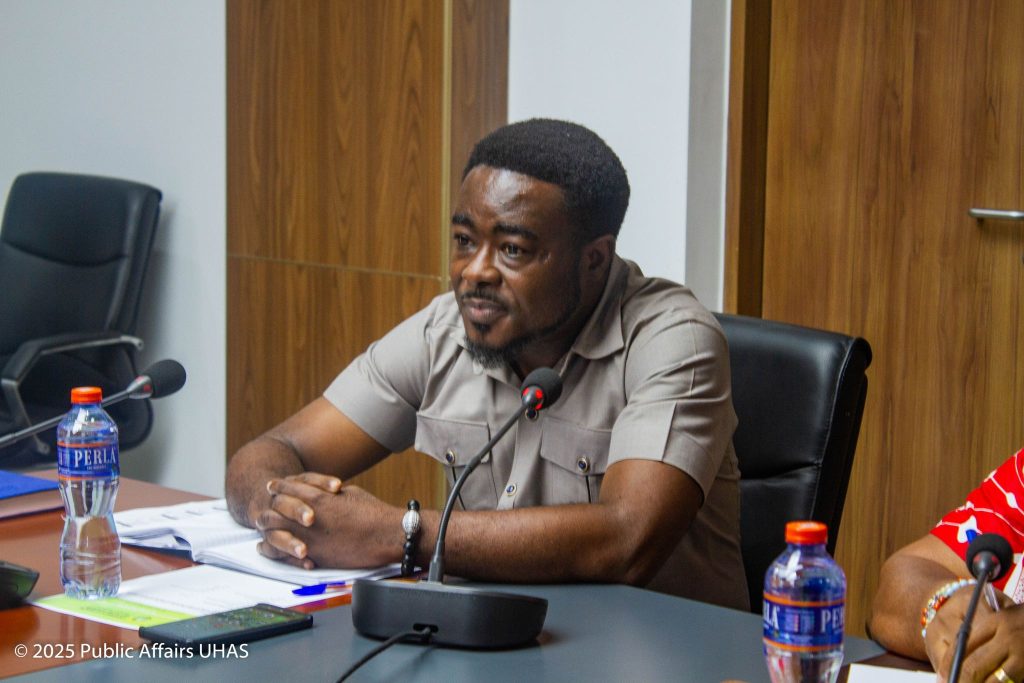
Dr. Tetteh urged funding agencies and relevant institutions to increase their investment in UHAS to help advance Ghana’s vaccine production goals. “The progress made by UHAS so far is impressive,” Dr. Tetteh said. “I hope more funders will come together to support UHAS, enabling them to take their efforts to the next level.”
UHAS Vice Chancellor, Professor Lydia Aziato, welcomed the team and highlighted university’s impressive facilities, including the largest laboratory complex in sub-Saharan Africa and an ultra-modern simulation centre. She emphasized the university’s readiness to support vaccine production and research, a critical national priority as Ghana aims for vaccine self-sufficiency by 2030.
She thus appealed for support to expand the university’s vaccine research and development capacity, which would help secure Ghana’s vaccine self-sufficiency. She further noted that such support would enable researchers to transfer their knowledge to younger generations before retiring, as most of them are nearing the end of their service.
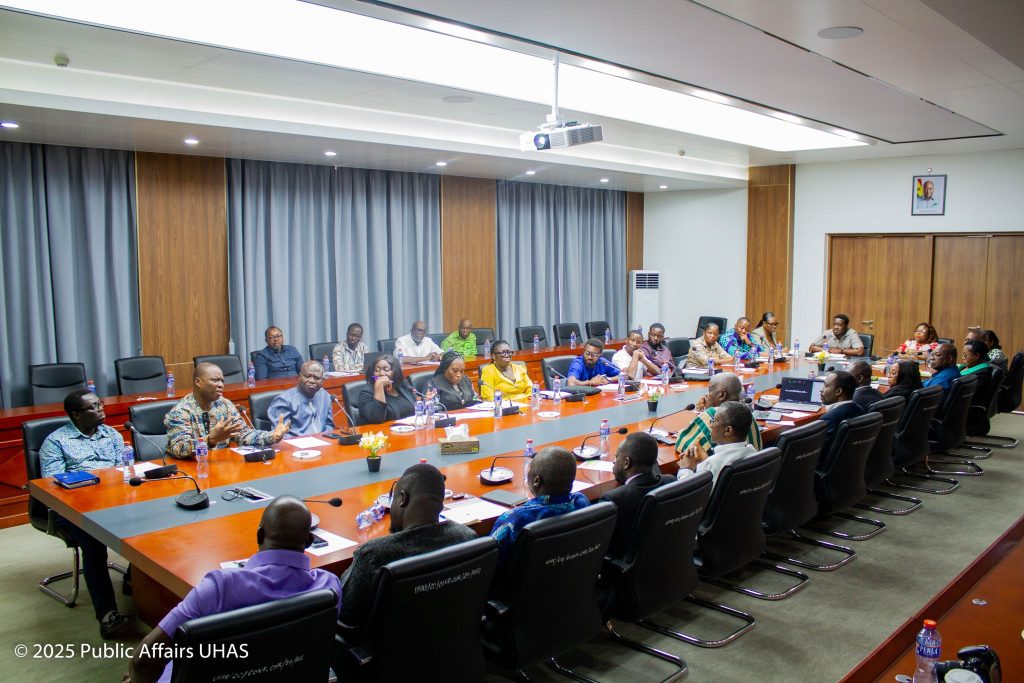
UHAS experts, including Professors Peter Atadja and Theophilus Adiku, presented a compelling case for collaboration, focusing on the urgent need to develop indigenous vaccines to reduce reliance on Gavi-supported programmes.
Representatives from the EU and UNIDO expressed optimism about supporting the initiative through funding mechanisms like the PharmaVax project, a German vaccine development programme.
The delegation toured UHAS’ facilities and expressed admiration for the university’s vision and capacity to lead this transformational initiative.
